What is acrylic polymer emulsion used for?
What is acrylic polymer emulsion used for?
Acrylic polymer emulsion is a versatile substance with numerous applications across various industries. From construction to arts and crafts, this material has gained popularity due to its unique properties and practical uses. In this article, we will explore the different applications of acrylic polymer emulsions and delve into their advantages. So, let's dive in!
1. Paints and Coatings:
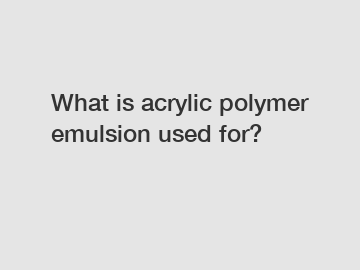
Acrylic polymer emulsions are most commonly known for their use in the manufacturing of paints and coatings. Due to their excellent binding properties, these emulsions serve as the base material in a wide range of architectural, industrial, and decorative paints. Their ability to adhere to different surfaces, such as wood, metal, and concrete, makes them highly desired in the construction and automotive industries. Additionally, acrylic emulsion paints provide excellent durability, weather resistance, and color retention.
2. Adhesives and Sealants:
In the world of adhesives and sealants, acrylic polymer emulsions are highly valued. These emulsions can be modified to suit various applications, ranging from bonding paper and cardboard to joining metals and plastics. Their quick-drying nature and excellent adhesion properties make them a popular choice for industrial adhesives. Moreover, acrylic polymer emulsion-based sealants are widely used in construction for sealing gaps, windows, and doors due to their flexibility and resistance to weathering and UV radiation.
3. Textile and Leather Industry:
Additional resources:Crude Phenol Producer: How to Revolutionize Its Production?
Boosting Safety & Efficiency: Unveiling Silane in Nitrogen Gas for Enhanced Applications
Boric Acid Flakes: A Powerful Solution for Pest Control & Home Cleaning
What is Methylpropiophenone used for?
Which Phenol Producers Are Innovating Sustainability?
Which Industries Stand to Benefit from High Quality Ethane Gas?
Transforming Walls: Styrene Acrylic Emulsion Unveiled
Acrylic polymer emulsions find extensive applications in the textile and leather industry. These emulsions are used in the production of synthetic fibers, such as acrylic fabric used in clothing and upholstery. The fibers created from acrylic polymer emulsions possess excellent color-fastness and resistance to fading, making them a popular choice for textiles. Additionally, acrylic emulsions are utilized in leather finishing to enhance the durability, flexibility, and water repellency of leather products.
4. Paper Coatings and Adhesives:
Acrylic polymer emulsions play a vital role in the paper industry as well. They are used as coatings on paper and cardboard to provide gloss, smoothness, and protection against moisture and stains. These emulsions act as a barrier, improving the print quality and ink adhesion on the paper surface. Furthermore, they are used as adhesives in laminating processes, enabling the bonding of different layers of paper or foil.
5. Arts and Crafts:
Acrylic polymer emulsions have gained immense popularity in the world of arts and crafts due to their versatility and ease of use. Artists, both professionals and hobbyists, widely use acrylic paints, which are made by mixing pigments with acrylic polymer emulsions. These acrylic paints offer vibrant colors, quick drying times, and can be used on various surfaces, including canvas, wood, and ceramics. Additionally, the emulsions can be used as a medium for creating glazes, varnishes, and textures in artwork.
In conclusion, acrylic polymer emulsion finds its applications in a wide range of industries, from construction to art. Its properties, including adhesion, flexibility, durability, and weather resistance, make it a sought-after material. Whether it is in the form of paints, coatings, adhesives, or textile enhancements, acrylic polymer emulsions contribute significantly to the quality and performance of various products. So, the next time you come across the question, "What is acrylic polymer emulsion used for?" remember the numerous practical uses it has across different industries.
Are you interested in learning more about Why Choose Latex Backed Artificial Grass, Carpet Latex, styrene butadiene latex? Contact us today to secure an expert consultation!
Additional resources:What are the advantages of purchasing pure zinc oxide powder for high-quality cosmetic products?
What is the history of iron oxide pigment?
What is the cost of HPMC?
Weifang Hota: Innovating New Material Technologies
New meaning in the purchase stage: "Which floor renovation contractor offers the most cost-effective solutions?
What is styrene acrylic emulsion used for?
Ultimate Guide to HPMC for Building Material Grade: FAQs Answered
200
0
0
Related Articles
-
153
0
0
-
Ferric Oxide Pigment: Exploring Uses, Safety, and Sustainable Alternatives
Ferric Oxide Pigment: Exploring Uses, Safety, and Sustainable Alternatives.
174
0
0
-
212
0
0
-
160
0
0
-
166
0
0
-
175
0
0
-
187
0
0
-
191
0
0

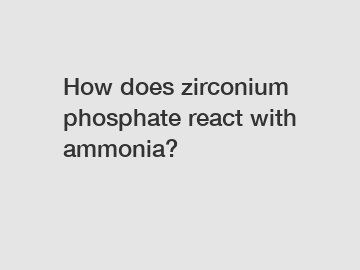
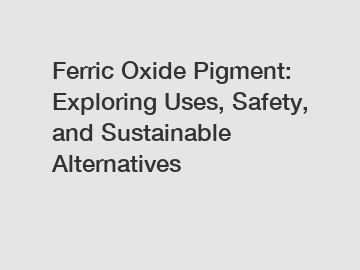
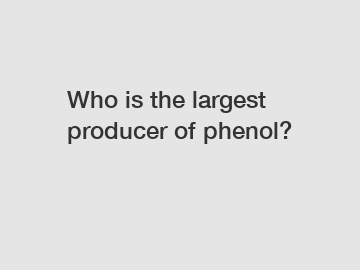


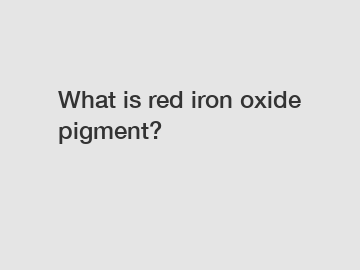


Comments
All Comments (0)